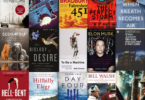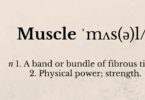One of the biggest problems for anyone interested in self-improvement is figuring out who to listen to. There are dozens of people clamouring for your attention, and many of them are – intentionally or unintentionally – going to steer you wrong. How do you differentiate between them? It’s tough. Some of them are deliberately lying, usually because they’re selling something – but this post isn’t about them. Because a lot of people will tell you that something works and genuinely believe it – and get it completely wrong. There’s no easy solution to this – but there are a few questions I think you ought to ask yourself before you fling yourself headfirst into any sort of self-improvement plan based on someone’s foolproof blueprint for success. Here’s my list, which I’ve come up with via several years of reading advice that ranges from awesome to idiotic. If you’ve got other suggestions, I’d love to hear them.
Question 1: Could their success have happened by accident?
Imagine 64 guys get a job in stockbroking one year. Let’s say that their chance of making money in any given year is 50%, and it’s completely down to chance (the real thing is probably more complicated than this, but bear with me). After one year, 32 make money and 32 are fired (and probably replaced, but that isn’t relevant at the moment). Of the remaining 16, make money the next year and 16 are fired. And so it goes, down to 8, then 4, then 2, then 1. After six years, one guy has made money every year – so he’s apparently a genius – and 63 people have been fired. The question is: do you buy that guy’s book on how to play the stock market? Maybe you do: it’s possible that he got something right. This is really a question about probability – just how possibly/likely is it that the person you’re listening to could have done what they’ve done completely by accident? If the answer is ‘quite likely’, maybe reconsider whether their advice is worth gambling on.
Question 2: Are you only hearing about them because they’re a success?
It’s probably fair to say that lucky breaks are important in every field of human endeavour but they’re much, much more important in certain fields than in others. Unfortunately, the people working in these fields don’t always like to acknowledge that, because it makes them feel less special. That’s why Will Smith is always saying things like:
“There’s no reason to have a plan B because it distracts from plan A.”
This, of course, is a fine thing to say if you’re Will Smith. But then again, you’re only hearing Will Smith’s opinions because he’s Will Smith. I don’t have any statistics on this, but I’m willing to bet that there are quite a few people working terrible jobs or in mountains of debt who, if you listened to them, would tell you that they should have given a bit more thought to their plan B. But you aren’t going to hear from them, because they aren’t Will Smith. Oh, and this isn’t strictly relevant, but check out this quote:
“The only thing that I see that is distinctly different about me is I’m not afraid to die on a treadmill. I will not be out-worked, period. You might have more talent than me, you might be smarter than me, you might be sexier than me, you might be all of those things you got it on me in nine categories. But if we get on the treadmill together, there’s two things: You’re getting off first, or I’m going to die. It’s really that simple, right?”
Hear that, Mo Farah? If you can somehow get Will Smith on a treadmill alongside you, you could kill him. For the record, if anyone wants to set up a treadmill race between me and Will Smith, I am absolutely prepared to make that happen.
Question 3: Did they do something to lay the groundwork for their success that they aren’t talking about?
Rich Froning has won the CrossFit Games for four years in a row. He is legitimately the fittest man in the world. And to be fair, Richard Froning is not telling anyone to follow his training plan: in this documentary, he claims to just decide on his workouts (he does about five a day) as he goes. But if he posted his exact training regime, day after day, on the internet, would that make sense for you? Well, no, because Rich Froning grew up on a farm, doing hours of manual labour every day, and then became a strength and conditioning coach. He has an insane tolerance for physical work, and you (probably) don’t. Following his plan would probably be a terrible idea for you. And this isn’t specific to CrossFit Games champions: in the 4-Hour Body, Tim Ferriss makes an (apparently) strong case for the idea that doing a single set to momentary muscular failure will pack on muscle faster than almost anything you can do. I’m not going to comment on the validity of that, except to say that Ferriss was absolutely not starting from the same point as most people reading his book. He’s a former wrestler with a ton of weightlifting experience – even detrained, his neurological pathways are aligned to allow him to shift more weight, more efficiently, than any first-timer. I’m not saying he’s wrong: I’m just saying it’s something to consider.
Question 4: Have they succeeded in spite of what they’re doing, not because of it?
Cain Velasquez, experts agree, is an absolute beast. He’s one of the most dominant heavyweights ever to fight in MMA, with off-the-charts cardio and a fighting style that mimics being mauled by a series of bears. And yet, Cain Velasquez trains his legs by doing high-rep leg extensions.
Again, I’m not saying that this is definitely wrong. Maybe that fat guy in the video is a genius, and so far ahead of the curve that the dozens of strength and conditioning coaches who’ll tell you leg extensions are pointless – and dangerous – from a functional point of view will soon be changing their tune. But maybe Cain Velasquez is a monster because he’s got an excellent team around him (which he does), a fantastic grappling coach (Dave Camarillo certainly qualifies) and an absolutely insane work ethic. And maybe if he stopped doing leg extensions, he’d be even better. Did I mention that he’s had at least two rounds of knee surgery? It’s worth considering.
This isn’t a complete list. It never is. But if you’re thinking about doing something new: whether it’s a diet, or financial plan, or training regime, these are questions worth asking yourself. Because sometimes, the people giving you advice aren’t lying to you: they just don’t know they’re getting it wrong.
HOMEWORK: Try asking these questions of whichever self-improvement guru you’ve been listening to most recently. See what you come up with.








Have you read “What I learned Losing A Million Dollars” http://goo.gl/F67f5f basically has a similar idea. The guy writing it talks about how he was lucky to get were he was and how he believed that he had a natural skill, which wasn’t the case.